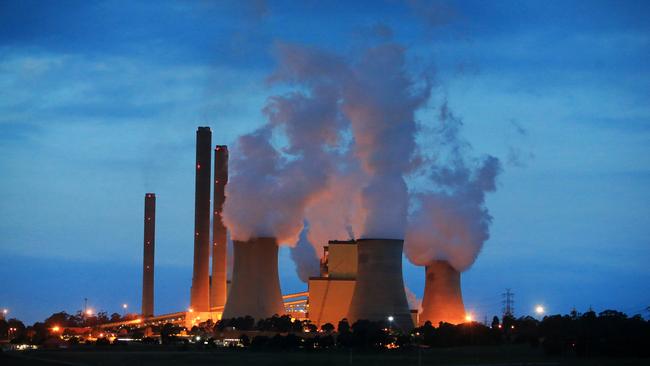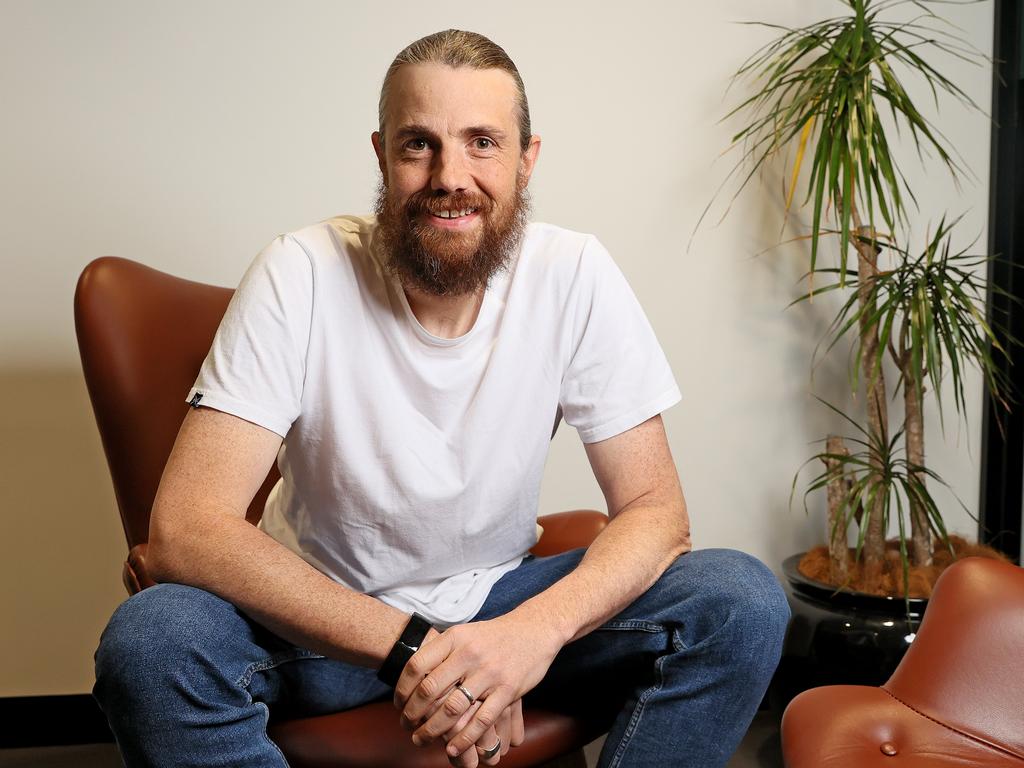AGL will go to Brookfield, Cannon-Brookes – the issue is price

It roared up more than 10 per cent on Monday in response to an out of the blue takeover bid by billionaire Mike Cannon-Brookes and Canadian private equity giant Brookfield.
One way or another it is hard to see how this deal will not go through and the market knows it.
This is about billions of dollars of capital might – capital that can see huge upside in transforming Australia’s largest carbon emitter and largest energy retailer.
“Eight per cent of Australia’s emissions, 0.1 per cent of the world’s emissions – that makes it pretty much the largest decarbonisation going on, on the earth today,” says Cannon-Brookes.
The AGL board says the $7.50 a share offer materially undervalues the company. It plans to split AGL into two companies, one renewables and retail and the other holding the coal-fired power stations.
On Monday, Cannon-Brookes and Brookfield’s Asia-Pacific managing partner, Stewart Upson, were out pitching that only they had the power to deliver for AGL shareholders, for the market and even for the government.
“The challenge AGL has in the separation is, what do you do about this tricky emissions issue,” says Cannon-Brookes. “The demerger puts them into a corner. Let’s get the mess, shove it into a room, close the door. That’s not going to solve it. That entity has no ability to manage this”.
For Upson – who successfully bagged electricity transmission business AusNet for Brookfield Asset Management – the AGL bid is next level. This time he brings Brookfield’s Global Transition Fund to Australia, backed by a $15bn pool of capital and an army of energy transition experts that Brookfield has built over many years.
“This is not a straightforward business. What it is today, does not exist going forward. They are trying to demerge it. That is going to have value consequences for shareholders and we believe negative value consequences,” says Upson.
“We are coming in and buying the company, but that is just the start. We are following it with another $10bn worth of capital to do that replacement, put in place that storage and retire existing assets.”
Brookfield’s head of transition investing is Mark Carney, the former Bank of England governor. He spoke to Cannon-Brookes for the first time on Monday.
The message Cannon-Brookes wants to go over loud and clear is the stability and certainty that the takeover would give the market. “I don’t mean the grid stability; I mean the market stability in pricing, cost of capital, risk levels is about the ability to execute,” he says.
The counterfactual he argues is far riskier for shareholders.
“I haven’t seen the transition plan from AGL. I have seen a demerger plan. I see two demerged entities that don’t have the capital to fund the transition itself and won’t have the rating to do so. They will be public companies with shareholders and yields and everything else. I see far greater risk for shareholders in that plan, for the grid, for prices for everything.”
Upson says it is too early to know whether AGL shareholders will be interested in shares in the new company. “Our offer is we are willing to buy 100 per cent of the company but to let existing shareholders roll in for up to 20 per cent if that’s attractive.”
Upson says there are a lot of discussions that need to occur, including whether a scrip offer to shareholder is part of the formal final offer or not. “Hopefully over the course of the week we can work though that,” he says.
A week may be a little pushy for AGL chairman Peter Botten and the company’s chief executive, Graeme Hunt, who had quite a reality check on Friday evening when the letter from Brookfield and Cannon-Brookes’ Grok Ventures hit their email.
It reads: “Representing $1 trillion in funds and assets under management, with deep expertise in owning and operating high quality infrastructure, generation and firming assets in Australia and globally, we are committed to an accelerated and responsible transition of Australia’s energy resources.”
Collectively Botten and Hunt have close to 60 years of experience in the C-Suites and boards of top companies, many of them in oil, coal and gas. They have also seen a takeover or two.
Cannon-Brookes says it is clear that AGL’s value after the split is less than the parent entity. Ironically, it is market unhappiness with the value of AGL that forced the board into splitting the business in two.
“I believe that the reason for the split. I think if you look at the reaction since, then, logically that does not make sense,” he says.
Botten and Hunt have not shut the door on Brookfield and Cannon-Brookes. They see the price as low-ball.
Shareholders can now fall back to the Brookfield playbook run by Upson. He says AGL wasn’t expecting the approach and took some time to digest it. “We tried to be as respectful of that as possible, we approached them after close and gave them the weekend to work through it. Now they have come out and said the value is not enough. We can engage with them and see if there is a path to getting due diligence.”
Upson says that due diligence will allow Brookfield to start to see the value levers more closely and that perhaps there is more value to be found.
This deal is on. AGL’s transformation is a marque investment project identified by Brookfield, global leader in hard basket energy transition, and by Cannon-Brookes with all the cachet he brings on climate change. The only issue is the price.
The government, however, remains worried about grid stability. Asked if a faster paced transition leaves the government as the underwriter of last resort, Cannon-Brookes says quite the opposite.
“In fact I would argue the demerger plan is the exact version of what the government does not like. That does leave them as the lender of last resort. That leaves them with all the remediation costs that are likely to fall on the government. Without that entity having the ability to transition itself, I don’t understand how that is going to happen.”
“We are bringing the capital and the plan. We would be fools to go into this and not understand that this is the largest retailer in the country with millions of customers. We have to deliver them the cheapest power we can and do that 24 hours a day seven days a week. That is exactly what we intend to do. The way to bring those prices down for customers is through executing on this transition,” he says.







The share price of coal fire power generator and energy retailer AGL said it all.